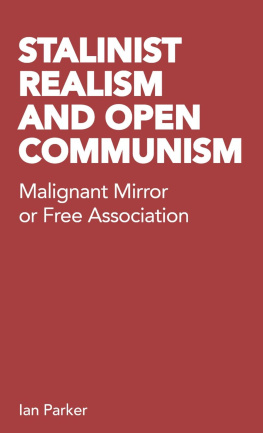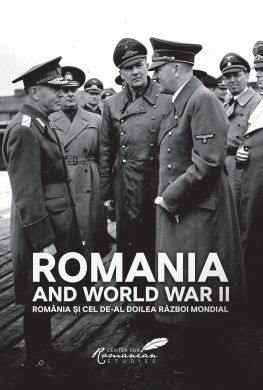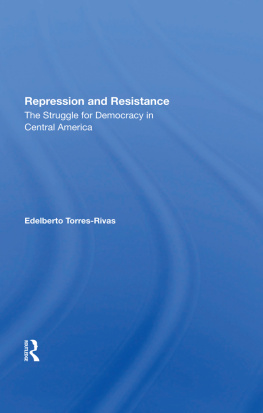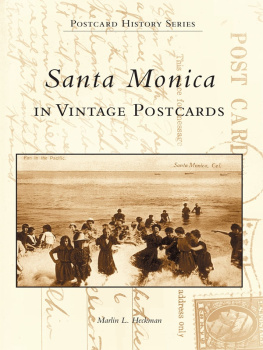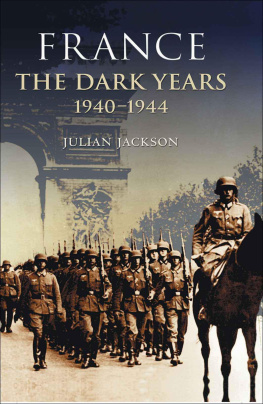
Repression, Resistance and Collaboration in Stalinist Romania 19441964
This book examines how the process of remembering Stalinist repression in Romania has shifted from individual, family, and group representations of lived and witnessed experiences characteristic of the 1990s to more recent and state-sponsored expressions of historical remembrance through their incorporation in official commemorations, propaganda sites, and restorative and compensatory measures. Based on fieldwork dealing with Stalinist repression and memorialization, together with archival research on the secret police (Securitate), it adopts an interdisciplinary approach to reveal the resurfacing of particular themes. As such it draws on concepts from sociology, political science, and legal studies, related to memory, justice, redress, identity, accountability, and reconciliation. A study of competing narratives concerning the meaning of the past as part of a struggle over the legitimacy of the post-communist state, Repression, Resistance and Collaboration in Stalinist Romania 19441964 combines memory studies with a transitional justice approach that will appeal to scholars of sociology, heritage and memory studies, politics, and law.
Monica Ciobanu holds a PhD in sociology from the Graduate Faculty of the New School for Social Research and is Professor in the Department of Criminal Justice at Plattsburgh State University of New York, USA.
Memory Studies: Global Constellations
Series editor: Henri Lustiger-Thaler
Ramapo College of New Jersey, USA and Ecole des Hautes Etudes en Sciences Sociales, France
The past in the present has returned in the early twenty-first century with a vengeance, and with it the expansion of categories of experience. These experiences have largely been lost in the advance of rationalist and constructivist understandings of subjectivity and their collective representations. The cultural stakes around forgetting, useful forgetting and remembering, locally, regionally, nationally and globally have risen exponentially. It is therefore not unusual that migrant memories; micro-histories; personal and individual memories in their interwoven relation to cultural, political and social narratives; the mnemonic past and present of emotions, embodiment and ritual; and finally, the mnemonic spatiality of geography and territories are receiving more pronounced hearings.
This transpires as the social sciences themselves are consciously globalizing their knowledge bases. In addition to the above, the reconstructive logic of memory in the juggernaut of galloping informationalization is rendering it more and more publicly accessible, and therefore part of a new global public constellation around the coding of meaning and experience. Memory studies as an academic field of social and cultural inquiry emerges at a time when global public debate buttressed by the fragmentation of national narratives has accelerated. Societies today, in late globalized conditions, are pregnant with newly unmediated and unfrozen memories once sequestered in wide collective representations. We welcome manuscripts that examine and analyze these profound cultural traces.
Titles in this series
Postnational Memory
Peace, War; Making Pasts Beyond Borders
Nigel Young
Encountering the Past within the Present
Modern Experiences of Time
Siobhan Kattago
Repression, Resistance and Collaboration in Stalinist Romania 19441964
Post-communist Remembering
Monica Ciobanu
For more information about this series, please visit: www.routledge.com/sociology/series/ASHSER1411
First published 2021
by Routledge
2 Park Square, Milton Park, Abingdon, Oxon OX14 4RN
and by Routledge
52 Vanderbilt Avenue, New York, NY 10017
Routledge is an imprint of the Taylor & Francis Group, an informa business
2021 Monica Ciobanu
The right of Monica Ciobanu to be identified as author of this work has been asserted by her in accordance with sections 77 and 78 of the Copyright, Designs and Patents Act 1988.
All rights reserved. No part of this book may be reprinted or reproduced or utilised in any form or by any electronic, mechanical, or other means, now known or hereafter invented, including photocopying and recording, or in any information storage or retrieval system, without permission in writing from the publishers.
Trademark notice: Product or corporate names may be trademarks or registered trademarks, and are used only for identification and explanation without intent to infringe.
British Library Cataloguing-in-Publication Data
A catalogue record for this book is available from the British Library
Library of Congress Cataloging-in-Publication Data
Names: Ciobanu, Monica, 1969 author.
Title: Repression, resistance and collaboration in Stalinist Romania
19441964 : post-communist remembering / Monica Ciobanu.
Description: Abingdon, Oxon : New York, NY : Routledge, 2020. |
Series: Memory studies: global constellations | Includes bibliographical
references and index.
Identifiers: LCCN 2020019116 (print) | LCCN 2020019117 (ebook) |
ISBN 9781138089204 (hardback) | ISBN 9781315109343 (ebook)
Subjects: LCSH: CommunismRomaniaHistory20th century. | Political
persecutionRomaniaHistory20th century. | Collective memory
Romania. | RomaniaPolitics and government19441989.
Classification: LCC HX373.5 .C5165 2020 (print) | LCC HX373.5 (ebook) |
DDC 323/.040949809045dc23
LC record available at https://lccn.loc.gov/2020019116
LC ebook record available at https://lccn.loc.gov/2020019117
ISBN: 978-1-138-08920-4 (hbk)
ISBN: 978-1-315-10934-3 (ebk)
Typeset in Times New Roman
by Apex CoVantage, LLC
Issues of memory politics and historical justice began to interest me over a decade ago. In 2005, I had finished a PhD dissertation at the New School for Social Research that focused on comparative questions of political legitimacy and transitions to democracy in post-communist Romania. Since then, I have continued to explore the challenges faced by societies coping with an authoritarian or a totalitarian past in their attempts to establish peaceful and functioning democracies. An initial meeting in 2008 with Lavinia Stan, a well-known scholar of transitional justice, broadened and shifted my interest in a novel but related direction to the field of memory politics. This new research opened up new avenues and helped me develop new interpretations of difficult questions related to the limitations of institutional reforms and the role that the international community can play in effecting social and political changes in post-communist countries, particularly in Romania.
Over the years, I have benefited from the moral and intellectual support of many colleagues, collaborators, and friends in bringing this book to fruition. In 2014, during a sabbatical leave, my own institution had generously supported my field work in Romania through a Redcay research award. In that spring, I began to collect primary and secondary material for a book in Romania. In Bucharest, Piteti, Sighet, and Timioara, I had the opportunity to meet and work closely with individual scholars, academic institutions, and civic associations. In 2014 (and then again in 2017), I conducted research at the National Council for the Study of Securitate Archives in Bucharest and received important guidance from its former director Drago Petrescu and Silviu Moldovan also of CNSAS. The Civic Academy Foundation was particularly generous in providing me access to their sources of published and unpublished oral history housed by the Sighet Museum in its Memorial of the Victims of Communism and the Resistance. Ana Blandiana, Ioana Boca, and Romulus Rusan (who sadly is no longer with us) have always been generous in giving me of their time, knowledge, and friendship. Octavian Bjoza (the head of the Association of Former Political Prisoners) met with me several times and shared his own experience of incarceration. In Piteti, Professor Ilie Popa not only provided me with materials concerning the memorialization of the Piteti experiment but was also a very gracious host. Professor Smaranda Vultur in Timioara and the Association of Former Deportees in Bargan provided valuable insights into the history of the 1950s deportations in the Banat region and its subsequent interpretation after 1989. Among many historians and social scientists I met in Romania, I would like to acknowledge and express my special gratitude to Mircea Stnescu and Cosmin Budeanc who helped me finalize .



